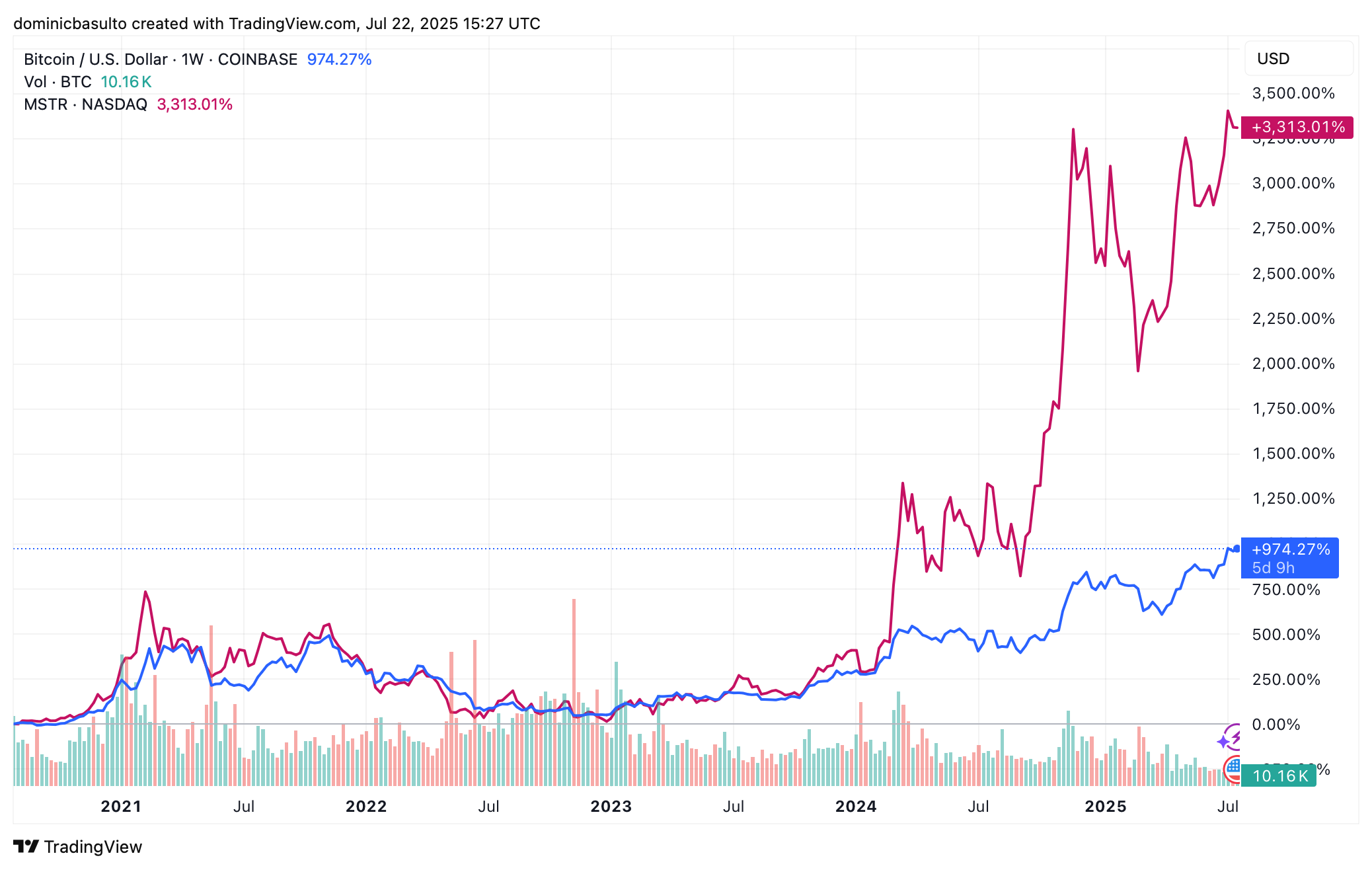The global ownership of Bitcoin (BTC 10.44%) is a lot more concentrated than many people realize. According to a new Motley Fool research report ("Who Holds the Most Bitcoin?"), a relatively small number of financial institutions, corporations, governments, and super-rich individuals now hold a surprisingly large percentage of Bitcoin's total circulating supply of almost 20 million coins.
This trend has only accelerated in 2025 as financial institutions hoover up the coins for their spot Bitcoin exchange-traded funds (ETF) offerings and deep-pocketed Bitcoin treasury companies buy as many Bitcoins as they can possibly get their hands on. But are any of these companies actually worth investing in?
The rise of the Bitcoin treasury company
Let's start with the corporations that are stockpiling Bitcoins on their balance sheets. These fall into roughly three categories: Bitcoin treasury companies; blockchain companies that need Bitcoins for their daily operations (think: Bitcoin miners); and S&P 500 companies such as Tesla (TSLA 4.42%) and Block (XYZ 3.87%).
Of these, the most interesting are the Bitcoin treasury companies, simply because they are going all-in on Bitcoin in a way that the world has never seen before. The business model of a Bitcoin treasury company is surprisingly simple: Raise as much money from investors as cheaply as you can, and then go out and buy Bitcoin.

Image source: Getty Images.
The number of Bitcoins that these companies are buying is truly impressive. As of July 14, when the Motley Fool research report came out, Strategy (MSTR 13.18%) held 597,325 Bitcoins on its balance sheet. That makes Strategy (the company formerly known as MicroStrategy) the world's largest corporate holder of Bitcoins. Its ownership represents nearly 3% of all Bitcoins in circulation. Strategy now holds more Bitcoins than the U.S. government and the Chinese government combined.

NASDAQ: MSTR
Key Data Points
There are smaller Bitcoin treasury companies making their way up the list, too. For example, Metaplanet (MTPL.F 7.31%), a Japanese company that's mimicking Strategy, holds 13,350 Bitcoins on its balance sheet. Galaxy Digital (GLXY 7.24%), the Canadian that's doing the same thing as Strategy, holds 12,830 Bitcoins on its balance sheet. A newly launched company, Twenty One Capital (CEP +0.00%), now holds 37,230 Bitcoins on its balance sheet, with plans to buy many more.
Financial institutions
At the same time, financial institutions such as BlackRock (BLK 1.85%), Fidelity, and Grayscale are amassing huge numbers of Bitcoins for their spot Bitcoin ETFs.
Right now, BlackRock is the clear leader, thanks to the phenomenal success of its iShares Bitcoin Trust (IBIT 7.11%) ETF. BlackRock now holds more bitcoins (700,000) than even Strategy. As long as net inflows into this ETF remain positive, BlackRock will be buying Bitcoin.
But here's the key point to understand -- BlackRock is not buying for its own use; it is buying for the use of its clients. Clients buy shares in the ETF, and then BlackRock must go out on the spot crypto market and buy enough Bitcoins to back the ETF.
But are any of these companies worth buying?
There are now several different ways for investors to get exposure to Bitcoin. One way, of course, is to buy Bitcoins directly, via a cryptocurrency exchange. But you can also buy Bitcoins indirectly, by investing in Bitcoin treasury companies. Or you could purchase a spot Bitcoin ETF.
But why settle for tracking Bitcoin's performance via an ETF? Strategy has proven that it can outperform Bitcoin, and that has led to a mad rush to embrace the Bitcoin treasury company model. During the past five years, for example, Strategy is up an astounding 3,500%. As you can see from the chart below, the divergence between the performance of Bitcoin and the price of Strategy started to become very noticeable in early 2024, which is when the new spot Bitcoin ETFs launched.

Bitcoin / U.S. dollar chart by TradingView
The caveat here, of course, is that the flip side of reward is risk. And Strategy may be taking on more risk than many investors are willing to accept. Essentially, Strategy is using debt and other forms of leverage. That works when the price of Bitcoin is rising, the cost of capital is relatively low, and market sentiment is positive. But all it takes is for the price of Bitcoin to drop, or for one of the new Strategy clones to blow up, and the business model could implode.
The irrational, emotional side of my brain loves what the newfangled Bitcoin treasury companies are attempting to pull off. However, the rational, logical side of my brain feels different. The warning signs are everywhere for those willing to look. From my perspective, the best strategy is still to buy and hold Bitcoin for the long haul.













